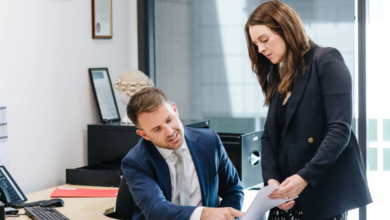How Leading IP Litigation Consulting Firms Drive Case Success
The stakes in intellectual property (IP) litigation are immense. A single patent infringement case can determine the survival of a startup, reshape a market, or validate billions in R&D investment for a global enterprise. While legal strategy forms the backbone of any case, the technical truth, the evidence of infringement or non-infringement, is the beating heart. This is where leading IP litigation consulting firms prove indispensable.
They are not merely vendors; they are embedded technical partners, transforming complex, often arcane, technological data into clear, compelling, and defensible legal arguments. Their role is multi-faceted, extending far beyond a simple prior art search to encompass everything from deep technical investigations to expert witness preparation and strategic monetization advice.
The Foundation of Technical Truth: Expert Analysis and Evidence Gathering
A case built on a shaky technical foundation is doomed. Leading IP consulting firms understand that success hinges on forensic-level evidence gathering. This process begins with meticulously defining the technical landscape and then zeroing in on the alleged infringement.
Prior Art Search and Technical Landscape Mapping: Far beyond keyword searches, elite firms employ technologists, often PhDs and former R&D engineers, to conduct systematic, exhaustive searches across global patent databases, academic journals, and product documentation. They perform claims mapping early to identify weaknesses or novel elements in a patent and to strategically locate invalidating prior art that was missed during patent examination. This mapping exercise informs whether to pursue litigation, licensing, or re-examination, providing a critical early-stage risk assessment.
Reverse Engineering and Product Testing: For products and services where internal schematics are not public, consultants use sophisticated reverse engineering techniques. This can range from hardware teardowns to analyzing network communications protocols. The goal is not just to understand the product, but to irrefutably demonstrate that the accused product or service meets every limitation of the asserted patent claim. This involves designing repeatable, court-admissible testing protocols that withstand rigorous Daubert and Frye challenges. The resulting testing reports are the physical proof that underpins the entire case.
See also: Sodding Ottawa: The Fastest Way to a Beautiful, Healthy Lawn
Mastering the Code: The Criticality of Source Code Review
In the digital age, software patents constitute a massive portion of all IP litigation. For these cases, the courtroom is less about physical evidence and more about digital forensics. The source code review is arguably the most sensitive and technically demanding phase of any software-related IP dispute.
Establishing Infringement/Non-Infringement: The consultants tasked with code review must possess a rare combination of legal understanding and deep programming expertise (often spanning multiple languages and architectures, from legacy code to modern cloud-native systems). Working under a protective order, they must navigate millions of lines of proprietary code to locate the handful of files, functions, or lines that precisely correspond to the patent claims. They are looking for direct literal infringement or, failing that, proof under the Doctrine of Equivalents. Their role is to extract the needle of evidence from the digital haystack and prepare demonstratives that make the finding intelligible to a non-technical judge and jury.
Handling Protective Orders and E-Discovery: The process is fraught with procedural hurdles. Leading ip litigation consulting firms are experts in navigating the stringent rules of electronically stored information (ESI) and protective orders. They manage secure review environments, ensure chain-of-custody for digital evidence, and work seamlessly with the legal team to draft review protocols. A misstep here, such as improper handling of confidential source code, can lead to severe sanctions and irreparably damage the client’s case. Their efficiency in performing focused, targeted reviews directly translates into reduced e-discovery costs and accelerated case timelines.
Translating Complexity: Bridging the Gap between Tech and Law
The core challenge in patent litigation is translation. A jury is not composed of engineers; a judge may not have a computer science background. The best technical evidence is worthless if it cannot be understood. A key function of a leading IP consulting firm is to act as the linguistic and pedagogical bridge between the laboratory and the courtroom.
Claim Chart Preparation and Technical Storytelling: The claim chart, a document that maps the patent claims to the accused product, is the centerpiece of the technical case. Consultants create “living” claim charts that are meticulously detailed yet strategically focused. Beyond the raw mapping, they craft the technical story of the case. They frame the invention’s novelty, explain the mechanism of infringement, and anticipate counterarguments. This storytelling transforms a dry technical document into a persuasive narrative that anchors the legal arguments.
Developing Trial Graphics and Demonstratives: Visual aids are crucial for jury comprehension. Consultants collaborate with trial graphics specialists to create animations, interactive models, and simple diagrams that distill years of complex R&D into a matter of minutes. For example, visualizing the flow of data packets in a networking patent or demonstrating the operation of a semiconductor device’s doping process requires both technical accuracy and visual clarity. These demonstratives must be technically sound enough for the expert witness to use under oath, yet accessible enough for a layperson to grasp the core concept of infringement or invalidity.
The Human Element: Expert Witnesses and Testimony
A technical expert is the human face of the evidence. Their credibility, demeanor, and ability to educate the court can swing the balance of a case, especially when technology is novel or highly specialized.
Vetting and Preparation of Technical Experts: Leading IP litigation consulting firms maintain vast networks of subject matter experts (SMEs), often tenured professors, highly cited inventors, or former CTOs, with impeccable credentials and prior testifying experience. They vet potential experts not only for their technical depth but also for their communication skills and ability to remain calm and authoritative under cross-examination. Once selected, the firm works intensively with the expert to ensure their testimony aligns perfectly with the technical analysis and the legal strategy.
Effective Deposition and Trial Testimony: The consultants function as the expert’s co-pilot. They prepare detailed binders, draft report sections, anticipate opposing counsel’s lines of attack, and conduct rigorous mock cross-examinations. The goal is to ensure the expert is not just knowledgeable, but resilient. Furthermore, the expert witness may be called upon to rebut the arguments of the opposing party’s expert. The consulting firm rapidly analyzes the opposition’s expert report, identifies flaws or factual errors, and arms their expert with the necessary ammunition to undermine the opposing technical narrative effectively. This strategic expert management is paramount to controlling the narrative at trial.
Beyond Litigation: Strategic IP Value Creation
The value of a leading ip litigation consulting firm does not end at the courthouse doors. Their deep technical insight is also leveraged for the strategic management and monetization of intellectual property portfolios.
Patent Valuation and Damages Assessment: Before or during litigation, firms provide comprehensive patent valuation services. This goes beyond standard financial metrics, incorporating the technical merit of the claims, the breadth of potential infringement, and the alignment with current market trends. This technical valuation forms the bedrock for determining potential damages, whether calculating reasonable royalty, lost profits, or price erosion. Working alongside economic experts, the consultants provide the technical justification for the damages model, making the financial claims defensible to a jury.
Alignment with Business Strategy: For corporate clients, the consultants help turn patent portfolios from a cost center into a profit center. They conduct “patent mining” exercises to identify underutilized, high-value assets that are being infringed or could be licensed. This proactive approach allows companies to generate revenue from their innovation, fund future R&D, and secure a competitive edge. By understanding the technology lifecycle, from R&D inception to post-grant proceedings and eventual litigation, these firms offer holistic guidance that maximizes the long-term return on intellectual property investment. Their involvement transforms IP defense and offense into a core component of overall business strategy.
Conclusion
The complexity of modern technology, from artificial intelligence and 5G telecommunications to advanced semiconductor design, has made specialized IP consulting a non-negotiable component of successful litigation. These firms serve as the intellectual engine of a case, providing the technical evidence, the persuasive narrative, and the expert credibility required to achieve a favorable outcome. They are the essential partners that translate complex innovation into litigable and monetizable assets. Their value is measured not just in technical reports, but in favorable settlements, successful jury verdicts, and billions in protected or realized IP value.
When seeking an elite technical partner, firms must prioritize those with deep, demonstrable expertise across diverse technology sectors and a proven track record of supporting high-stakes litigation and monetization campaigns. For over a decade, leading IP litigation consulting firm Lumenci has exemplified this integrated approach. With a team of world-class technologists and a focus on technologies like Software, Telecom, and Semiconductor, Lumenci has delivered over 70,000 patent analyses and driven $3B+ in outcomes for clients. They specialize in leveraging their forensic-level technical expertise in services like Source Code Review and Reverse Engineering to build the robust evidence backbone that IP law firms, enterprises, and deep tech startups need to secure success in the most challenging IP disputes and maximize the value of their innovation.




